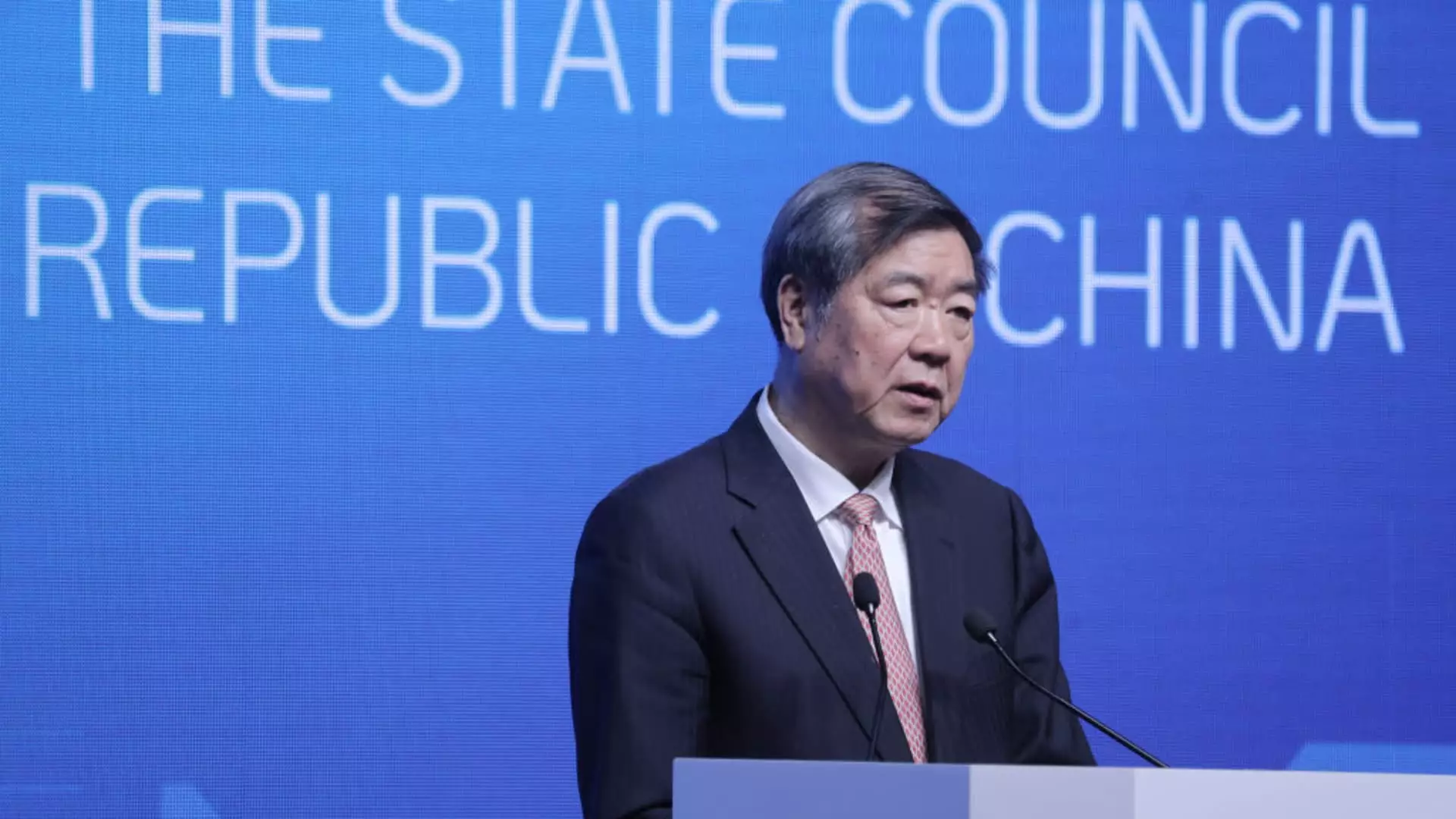On a pivotal note, Chinese Vice Premier He Lifeng has underscored an ambitious commitment to reinvigorate Hong Kong’s competitiveness in the global financial arena. His remarks at the third Global Financial Leaders Investment Summit, convened by the Hong Kong Monetary Authority, highlight a strategic approach aimed at positioning Hong Kong as a premier international financial hub. This shift comes at a time when the city has faced significant economic challenges and declining market performance. It raises important questions about the interplay between local policies and mainland China’s economic support to effectively navigate these turbulent waters.
He Lifeng’s declaration of intent to invest in innovation and deploy favorable financial policies signals a renewed focus on maintaining Hong Kong’s unique economic status. Emphasizing the need to build an “international financial center,” he emphasized not only the fundamental strengths of Hong Kong’s existing infrastructure but also the necessity for innovative solutions that can attract both domestic and foreign investments. The commitment to “explore and implement” new measures indicates a willingness to adapt strategies to harness the emerging economic opportunities and challenges in a rapidly changing global financial landscape.
This determination was also mirrored in the statements made by Li Yunze, the minister of China’s National Financial Regulatory Administration. His assertion that nearly 80% of mainland businesses looking for offshore listings choose Hong Kong serves to reinforce the intertwined destinies of these two regions. It draws attention to the critical role Hong Kong plays in channeling mainland capital into the global market, further connecting it with broader international financial systems.
Despite these upward aspirations, Hong Kong is grappling with significant hurdles that cannot be overlooked. The city emerged from a year marked by declining market performance, with its Hang Seng Index experiencing a significant downturn—making it the worst-performing index of its kind last year, and highlighting four consecutive years of decline. The statistics that reveal a 16% drop in IPO proceeds and follow-on sales in the first half of the year reflect a stark reality necessitating urgent action.
Moreover, the withdrawal of major international banks and the downsizing of operations present a dire scenario for the local workforce and economy. This exodus can be attributed, in part, to a stagnation in listing activity and a general decline in deal-making opportunities. The current landscape raises a critical question: Can the proposed financial reforms and stimulus measures truly turn the tide for Hong Kong, or are they merely temporary fixes for deeper systemic issues?
Stimulus Measures and Foreign Investment
The central government’s recent policy adjustments, including reduced capital thresholds for foreign investment and permissions for individuals to invest in public companies, are aimed at attracting renewed foreign capital. These measures, conveyed by PBOC governor Pan Gongsheng, reflect a wider strategy to enhance the relationship between domestic markets and international investors, attempting to foster an environment conducive to economic growth.
A key indicator of potential recovery lies in the resilience displayed by Hong Kong’s stock exchange operators, who have noted early signs of a market rebound in the third quarter. The conducive environment created by Beijing’s stimulus initiatives could serve as a catalyst in reversing trends if these policies are effectively implemented and aligned with market expectations.
As Vice Premier He Lifeng and other governmental officials play a vital role in navigating these complex economic waters, the focus on innovation, supportive policies, and international collaboration could redefine Hong Kong’s financial landscape. The outcome of these initiatives will be essential in determining the city’s economic stability and growth trajectory. While optimism abounds regarding potential recovery, the persistent challenges within the global financial landscape are far from resolved. Only time will tell if Hong Kong can emerge as a resilient financial center amid shifting economic dynamics and elevated expectations.

Leave a Reply